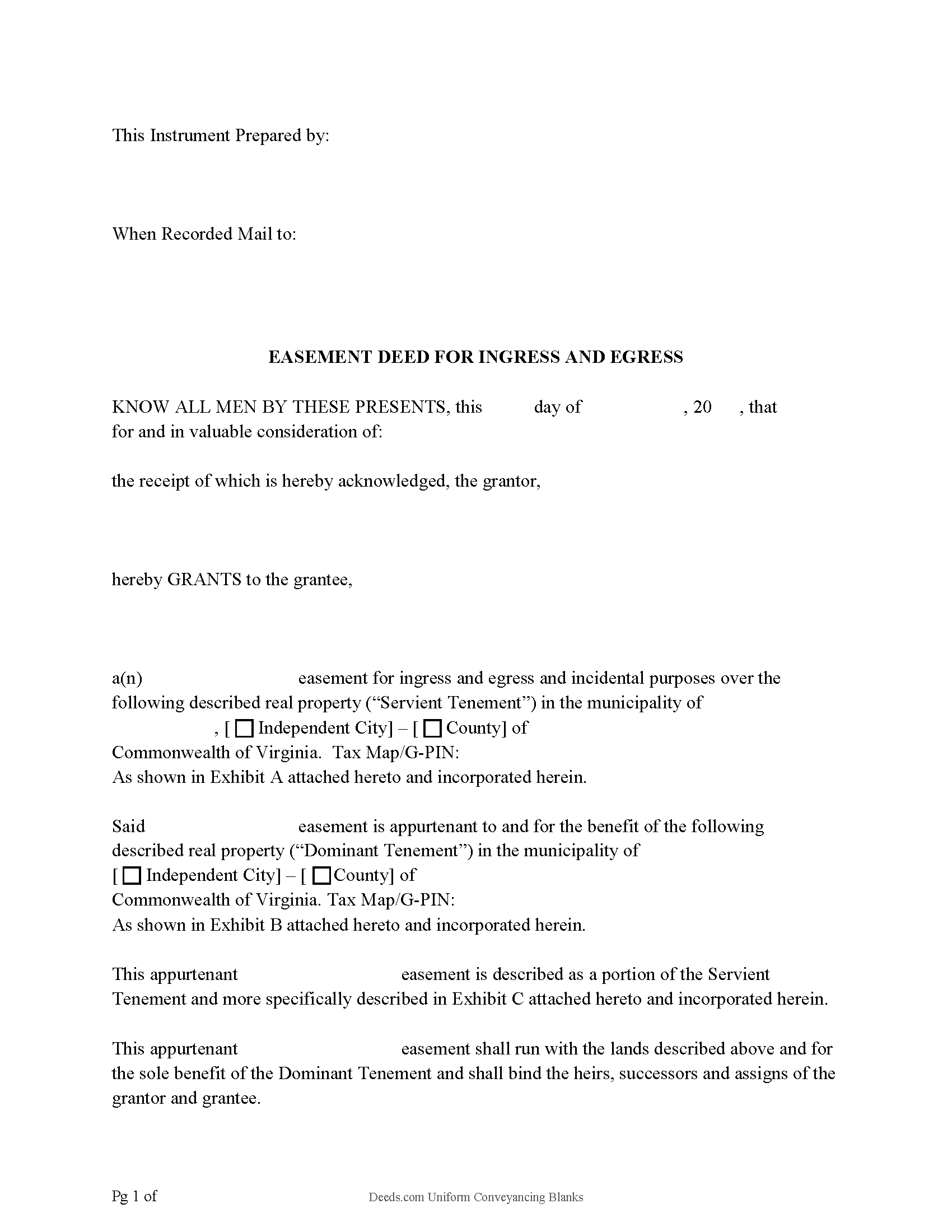Download Virginia Easement Deed Legal Forms

Virginia Easement Deed Overview

An easement gives a person the right to use another's real property for a specific purpose. This is a non-possessory interest and can relate to solar rights, utility easements, and other types of appurtenant or easements in gross. In Virginia, unless the terms of an easement deed provide otherwise, the owner of a dominant estate cannot use an easement in a way that is inconsistent with the uses allowed by the grant of the easement. Further, the owner of the servient estate cannot engage in an activity or cause any objects to be present upon or adjacent to the burdened land which would unreasonably interfere with the enjoyment of the easement by the owner of the dominant estate ( 55-50.1). The owner of land that is subject to an easement for the purpose of ingress and egress may relocate the easement, on the servient estate, by recording a written agreement evidencing the consent of all affected persons and setting forth the location of the easement. This agreement is to be recorded in the office of the clerk of the circuit court in the county or city where the easement is located ( 55-50). An easement deed should be in writing and should contain the terms of the agreement, the duration and scope of the easement, and a description.
Before it can be admitted to record, an easement deed must contain the grantor's original signature, which must be acknowledged by him or proved by two witnesses. A certificate of acknowledgment evidencing such acknowledgment should be attached to the deed ( 55-113). Notarial acts can be performed within this state or out of state. Out-of-state acknowledgments will have the same effect as acknowledgments performed by a notary public in Virginia and such acts may be performed by any officer who is authorized to perform notarial acts in the place where the act is performed ( 55-118.1). Acknowledgments taken in another state must conform to the rules contained in 55-118.2 of the Virginia Code. The official seal of the person performing the notarial act, whether or not it is in this state, should be affixed to the document ( 55-118.2).
An easement deed in Virginia must be recorded in the city or county where the property subject to the easement is located in order to provide constructive notice of the instrument. Until the deed is recorded, it will be void to all purchasers for a valuable consideration without notice who are not parties to the deed and will also be void as to lien creditors ( 55-96). This is a race-notice recording act, which means that a later buyer who pays fair value and records a deed first without having notice of any earlier conflicting interests will have priority over later recordings.
(Virginia ED Package includes form, guidelines, and completed example)